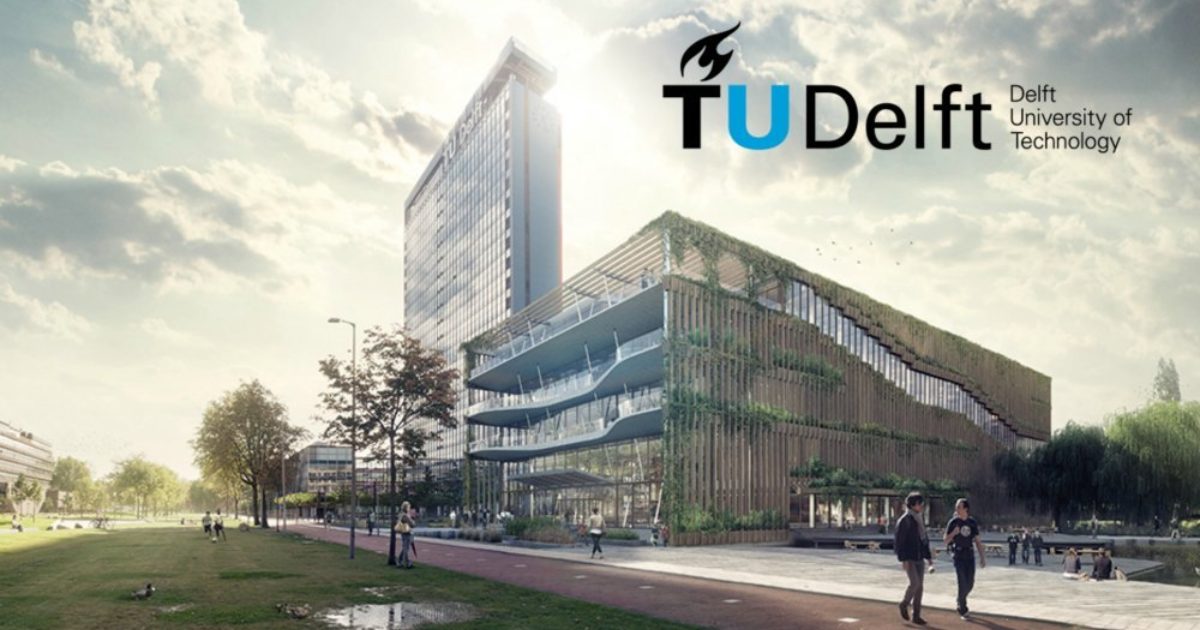TU Delft governs biodiversity towards green TU Delft Campus
Monday, 22 May 2023, during Biodiversity Day, TU Delft is launching a collaboration with Waarneming.nl to make the TU Delft Campus more green and vibrant. René Hoonhout and Tim Tabak from EcoCampus gave tours to students and staff to discover and capture plants, animals and organisms on campus. Monitoring the biodiversity is an important part of the sustainability ambition of the TU Delft to be carbon neutral, climate-adaptive and circular by 2030 with a focus on improving biodiversity and quality of life. René Hoonhout: “We are moving towards a nature-inclusive way of management. By making observations, we can measure whether this contributes the improvement of biodiversity.”
René Hoonhout sees great importance in this monitoring: “By collecting data on biodiversity, we can see whether our approach is having the desired effect. In doing so, we not only contribute to our own monitoring, but also to national biodiversity data from Naturalis and to the Nature Plus organization of Oxford University and UNEP, which TU Delft is a part of.”
Biodiversity Day
During the Biodiversity Day, both students and staff are challenged to identify as many species of animals, plants and organisms as possible using the app ‘ObsIdentify’. The app is part of nature platform Waarneming.nl, that TU Delft collaborates with. Tim Tabak explains: “After downloading the app ‘ObsIdentify’ on your phone, you can create an account. With this account you can easily identify plants, animals and organisms anywhere. You open the camera in the app, take a picture of a plant, for example, and press ‘identify.’ You immediately get more information about the species and can upload it into the app, that contributes to the data collection of TU Delft.” He continues: “The uploaded photos are stored in your account and can be viewed by validated nature experts. You can also view uploads from yourself and all other observers on the Waarneming.nl website. Nature experts check your observations and can suggest an improvement or ask a question.”
Green and natural campus
In addition to collecting data through Waarneming.nl, there are many activities planned to improve biodiversity on campus. A first measurement of biodiversity will be completed before the summer of 2023, which will serve as input for the development of various habitats. René Hoonhout: “It is preferable to let nature grow as natural as possible, but this is not possible everywhere. The MekelPark for example, in the heart of campus, must also provide space for students and employees to lie in the grass and relax.”
To create multiple habitats, TU Delft starts with new mowing policy. “In addition, by planting multi-trunk trees and shrubs, we are trying to create nest, shelter and food opportunities for birds and small mammals. At the front of the Faculty of Architecture & the Built Environment, we plan to plant trees. These will be located in a tree wadi: a combination of water collection, heat stress reduction and biodiversity.”
Students and teachers
Students and teachers play an important role in working towards a greener and more natural campus. For example, Landscape Architecture, Architecture and Urban Planning students design several greening projects, which actively contribute to sustainable innovation for biodiversity. For example more variety of biodiversity at places like cycle paths and lunch spots. Pierre Oskam, lecturer in Architecture, has designed 3D-printed ceramic nesting boxes specifically for sparrows. Tim Tabak: “The sparrow population is declining rapidly in the Netherlands. With this kind of innovation, we hope to create more places for sparrows to stay.”
With all these initiatives and actions, TU Delft is working towards a climate-proof campus with as much space for biodiversity as possible.

